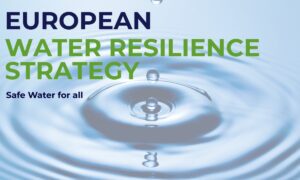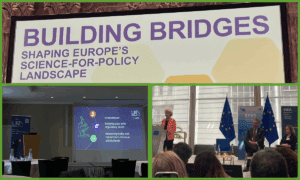Romina Pourmokhtari, Swedish Minister for Climate and Environment, as well as Jakob Forssmed, Swedish Minister for Social Affairs and Public Health, and Acko Ankarberg Johansson, Swedish Minister for Healthcare held presentations on the Swedish Presidency’s priorities relevant to the ENVI Committee’s work.
The meeting began with Romina Pourmokhtari’s presentation. She highlighted the importance of numerous topics which EuChemS monitors, or is directly involved with. She began her presentation emphasizing the interconnected key aims of the priorities. Regarding practical matters, she elaborated on the importance of the fit for 55 framework and the shift from fossil fuels. She outlined certain aims, such as delivering council mandates regarding F-gases and ozone depleting substances, as well as a focus on carbon-dioxide removal technologies. She proposed increased ambitions in line with the results of the COP27 conference. Minister Pourmokhtari also confirmed the Swedish Presidency’s commitment to the EU’s Zero Pollution Ambition, highlighting the wastewater treatment aspect of it. EuChemS is an invited member of the Zero Pollution Stakeholder Platform, and during the most recent stakeholder meeting, EuChemS Executive Board member Ioannis Katsogiannis contributed on the chemical status on groundwaters, amongst other topics. Lastly, circular economy and effective resource use was also highlighted as an environmental priorities of the Swedish Presidency – which also pertains EuChemS’ focus areas due to its circular economy and element workshops.
With regards to health, Jakob Forssmed, Minister for Social Affairs and Public Health, and Acko Ankarberg Johansson, Minister for Healthcare jointly presented priorities, which centred around updating quality and safety standards for substances of human origin and for human application, the urgent advance of medical device regulation to avoid device shortages, coordinated crisis preparedness and cancer research. They also explained that they aim to adapt council recommendations on the Global Health Strategy during the Swedish Presidency, as well as on combating antimicrobial resistance in the EU.
After their respective presentations, all members engaged with the committee, and responded to questions.



